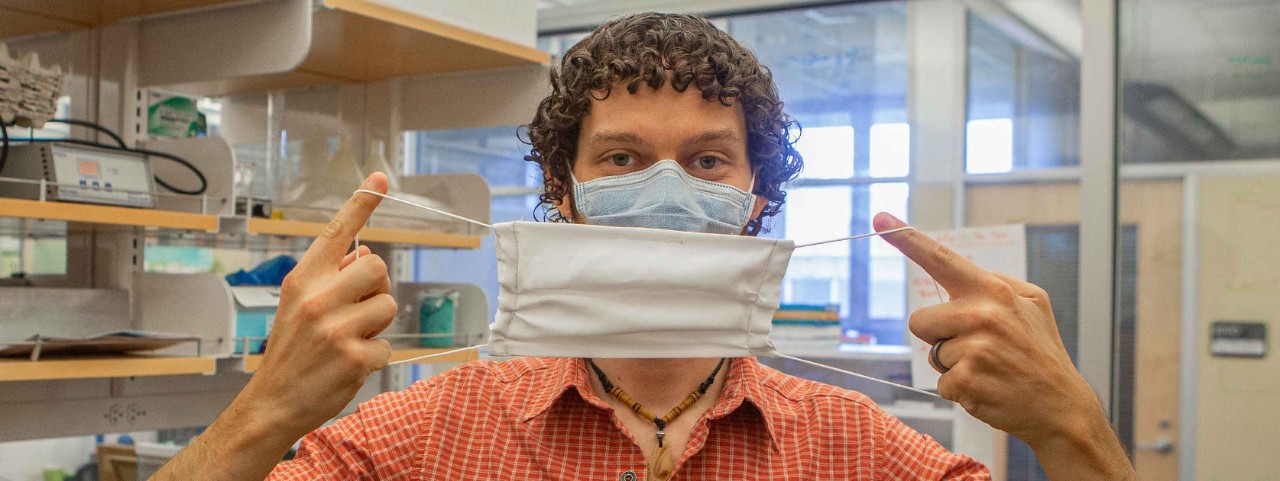
NBC News: Silk masks are good for skin, staying safe
UC biologist talks to NBC News about why silk is a good alternative to prevent COVID-19
NBC News talked to University of Cincinnati biologist Patrick Guerra about why silk is a good alternative fabric for face masks to prevent the spread of COVID-19.
Guerra, an assistant professor of biology in UC's College of Arts and Sciences, conducted experiments last year on different fabrics that are often used in face masks when N95 respirators are not available. UC researchers found that silk creates the most effective barrier compared to other fabrics like cotton or polyester because it repels moisture.

UC biologist Patrick Guerra studies insects such as silkworms and monarch butterflies in his biology lab. Photo/Lisa Ventre/UC Creative + Brand
“It’s still the wild west when it comes to making face coverings,” Guerra told NBC news. “But we’re finding ways to use basic science and apply what we know to improve them.”
Silk masks are becoming increasingly popular because of their comfort and fit.
“Cotton traps moisture like a sponge. But silk is breathable. It’s thinner than cotton and dries really fast,” Guerra said.
Read more about UC biologist Patrick Guerra's silk research.
Featured image at top: UC postdoctoral researcher Adam Parlin holds up a silk face mask. A UC study found that silk masks might work better at repelling COVID-19 than cotton or synthetic masks. Photo/Joseph Fuqua II/UC Creative + Brand
Related Stories
UC doctor patenting first at-home endometriosis diagnostic test
March 31, 2025
March is endometriosis awareness month. Endometriosis is a condition that can be debilitating and is estimated to affect more than 6 million women in the U.S. Endometriosis occurs when tissue similar to the lining of the uterus grows outside of the uterus, causing pain, inflammation and potential infertility. The road to a diagnosis has been challenging for many women, but a University of Cincinnati researcher has developed a noninvasive diagnostic test that could make a difference.
Exploring careers in robotics engineering: A path to the future
March 28, 2025
Discover robotics engineering careers: skills, paths, and opportunities in manufacturing, healthcare, and space. Explore salaries and how to start at UC’s CEAS.
Cancer Center, Dana-Farber, more receive $1.2M from family...
March 28, 2025
The Cincinnati Business Courier highlighted a $1.2 million grant received by the University of Cincinnati Cancer Center's Timothy Phoenix and colleagues at Dana-Farber Cancer Institute and the German Cancer Research Center to study pediatric low-grade gliomas.
